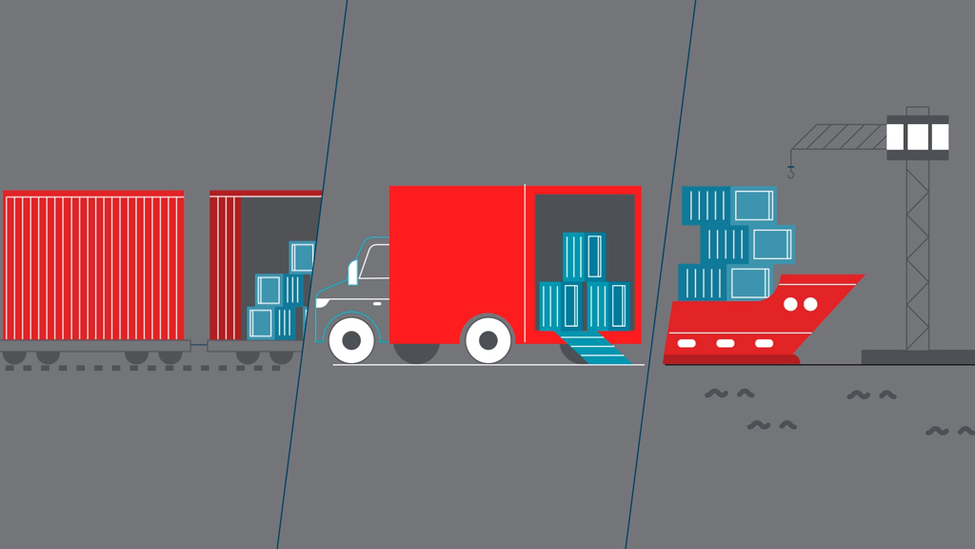Cargo and Identity Theft: Early Reporting Can Help Minimize Loss


Cargo theft is a formidable challenge for transportation businesses, leaving victims reeling from substantial financial hits and disruptions to operations. The theft techniques for these crimes have become increasingly sophisticated, and recovery of stolen property often depends on a swift and effective response. Being prepared with a plan of action that ensures the right steps are taken immediately following discovery of a theft – including quick reporting of the crime – can help minimize loss and increase the likelihood of recovering stolen goods.
Reporting cargo theft
It is important to report cargo theft promptly and accurately to help increase the probability of recovering stolen cargo, bringing the criminals to justice and minimizing losses.
Jurisdiction matters: Report theft to local police
Report a cargo theft to the police authority nearest to the location where possession of the freight was taken by the suspected thieves. If the theft occurred in a location other than where the transportation company is headquartered, the police near the company’s headquarters won’t have jurisdiction and may not file a report. The report will also need to include the shipper’s location, as this is where the freight first left the legitimate supply chain.
The following information may be required when reporting a cargo theft to a law enforcement agency:
- Make, model, VIN, PIN or serial number and license plate number (truck, tractor and/or trailer) so it can be entered into the National Crime Information Center (NCIC).
- Intermodal, VIN, chassis license plate number and intermodal container assigned number.
- Physical description of the conveyance (with a photo if possible), including any related documentation or paperwork (serial numbers, batch numbers, barcodes, packing list, etc.).
- Physical description of the cargo.
- Date, time and location the theft occurred (as specific as possible, using a mile marker, address or name and location of a business, if applicable).
- Last known location of the cargo.
- Driver’s information and contact phone number.
- Any available tracking information.
Having all the above information on hand when making the report increases efficiency and prevents unnecessary delays in the investigation.
For Travelers customers: How to report a cargo theft
- Immediately report a cargo theft to the Travelers online claim center (or call 1.800.238.6225).
- Contact your Travelers Special Investigations Group (SIG) representative, whose contact information can be obtained from your agent or found on the Travelers secure client website. SIG conducts its own investigations in cooperation with law enforcement. Once a theft is reported to Travelers SIG, they maintain regular contact with the customer throughout the claim and recovery process.
Travelers SIG requires the following information:
- All the information provided to police.
- Travelers claim number provided by the Claim Center.
- Departure, route and destination locations.
- Copy of Bill of Lading.
- Detailed physical description of the cargo, including photos and any markings on the pallets, wrapping or boxes that could help SIG identify and recover stolen cargo.
- Any relevant tracking numbers, such as UPC or other type of manufacturer.
Spread the word: Alert industry organizations
In addition to reporting cargo theft to the police, the Travelers Claim Center and SIG (for Travelers customers), it’s also important to alert organizations that accept cargo theft and fraud reports. While these organizations don’t conduct investigations or assist in recovering stolen property, they help prevent cargo theft and reduce losses by collecting and sharing relevant information. Below are several entities that accept cargo theft reports (note that membership may be required). Following these organizations and staying up to date on cargo theft reports may also help businesses prevent cargo theft.
- CargoNet – This company offers cargo theft prevention and recovery solutions and takes cargo theft reports. Membership is not required to report a theft.
- TIA Watch Dog – This service collects fraud reports that help Transportation Intermediaries Association (TIA) members make informed decisions when selecting business partners.
How to prevent cargo theft
The best way to keep your company safe from cargo theft is to take steps to prevent this crime from happening in the first place. A focus on prevention may help you save time, safeguard your company’s reputation, prevent losses and keep your costs down.
To help minimize the risk of cargo theft, companies can take the following precautions:
- Verify brokers and carriers – Use the Federal Motor Carrier Safety Administration’s (FMCSA) Safety and Fitness Electronic Records (SAFER) system to validate phone numbers of brokers and carriers. Always call the listed SAFER number to confirm legitimacy and be sure to cross-reference the number listed on SAFER to the one on the company’s website. If no SAFER number is listed, consider pausing the transaction. Travelers’ Transportation Innovation website for customers includes a specially curated collection of carrier-vetting resources.
- Ensure consistency across contact information – Confirm that contact names, phone numbers and email addresses are consistent across company websites, carrier packets, FMCSA and other verification resources. Any discrepancies should raise concerns.
- Examine documents carefully – Thoroughly examine documents, including the Bill of Lading, any shipping documents, certificates of insurance and ACORD forms in the carrier packet, to detect inconsistencies or irregularities.
- Conduct ongoing carrier verification – Regularly re-verify carrier information, looking for any changes or differences in contact information, addresses or other relevant details that may indicate fraudulent activity.
- Limit dependence on public load boards – Reduce reliance on the use of public load boards, especially in instances involving high-target commodities such as food and beverages, household goods and electronics. Instead, rely on carriers in your vetted, approved carrier pool.
- Request verified photos – Obtain photos that include verification of date and time taken, along with validation of the truck and trailer and the driver’s name and ID. The information should all match from dispatch to pickup to delivery. Record any changes and notify relevant parties.
- Recognize red flags – Be cautious of blind deliveries, unusually high rates, expedited payment offers or payment platforms, which are often used to pay unsuspecting drivers on redirected or blind shipments. Also, be wary of last-minute changes to drivers, trucks, delivery locations or company names for pickup.
Implementing these measures can help strengthen cargo security and reduce theft risk exposure.
The transportation industry maintains its focus on reducing cargo theft risk
Travelers and many transportation industry associations share news, tips, content and other resources to help prevent cargo theft. Stay involved and visit their sites regularly to keep current on the latest cargo theft trends and mitigation strategies.
- Transported Asset Protection Association (TAPA) – This nonprofit association has been dedicated to addressing cargo theft in supply chains for nearly 30 years.
- CargoNet – This membership organization facilitates secure information-sharing about cargo theft among theft victims, their business partners and law enforcement agencies.
- TIA – This membership organization for third-party logistics professionals offers fraud prevention resources, information and training.
- Regional Cargo Councils and Associations – Along with national associations, regional cargo councils and associations provide valuable resources, networking and information-sharing opportunities to help reduce the risk of cargo theft.
- Travelers Innovation Network – For Travelers customers, a curated collection of vendor solutions is designed to help keep workers, worksites and businesses safe. The Travelers Innovation Network includes Verified Carrier, which provides a digital platform to verify the compliance and legitimacy of carriers.
- Travelers SIG quarterly calls – Also exclusively for Travelers customers, these calls offer information about cargo theft and the latest SIG resources that are available to help prevent and respond to cargo theft.
Travelers and industry associations offer great opportunities to stay informed and proactively avoid situations that could make your company more vulnerable to cargo theft.
Reporting identity theft
Identity theft is a crime commonly linked with cargo theft, often involving criminals stealing the identity of legitimate transportation companies to facilitate their illegal activities. By impersonating these companies, thieves gain access to sensitive information, such as shipping schedules and cargo details, that allows them to intercept and steal shipments. Furthermore, the complexity of these schemes makes it challenging for law enforcement to track down the perpetrators, as they often operate across multiple jurisdictions and overseas.
Prompt and accurate reporting is key to stopping thieves from continuing to use a stolen identity. It can also increase the odds that law enforcement will catch the criminal and minimize damages to the victimized company and others in the future.
To mitigate the impact of cargo theft or identity fraud:
- Promptly contact the insurance company to report that the company name and information were used fraudulently. This is important for investigative and coverage purposes.
- Immediately report the incident to the appropriate authorities and industry organizations.
Law enforcement and federal agencies
- File a police report with the local or state law enforcement agencies where the theft occurred.
- Contact the Federal Bureau of Investigation (FBI) by calling 1-800-CALL-FBI (1.800.225.5324) and submitting a tip online at ic3.gov or tips.fbi.gov.
- If a business email has also been compromised, report the crime to the FBI’s Internet Crime Complaint Center.
- Report the fraud to the U.S. Department of Transportation Office of the Inspector General’s report fraud hotline.
- Utilize the Federal Trade Commission’s report fraud page.
- Visit the FMCSA’s "Broker and Carrier Fraud and Identity Theft" resource to file a complaint with the FMCSA’s National Consumer Complaint Database and learn about additional steps that may be taken in the event of an identity theft.
Call 911 if you are in immediate danger.
Industry associations and organizations
- Report to CargoNet using its identity theft submission form (membership not required for reporting).
- Report to TIA and TIA WatchDog (membership required).
- Inform load boards, factoring companies, customers and business partners as necessary.
- Report the event to Verified Carrier (membership required), which can help re-verify the business identity going forward.
Taking swift action with these organizations can help contain the damage, strengthen fraud prevention measures and protect your business from further risks.
How to prevent identity theft
While ID theft can’t always be prevented, to avoid serious repercussions the following proactive steps can help reduce risk:
- Verify business information – Regularly check that your company’s phone number and profile information on the FMCSA SAFER system are accurate. If discrepancies are found, update them through the SAFER registration page.
- Limit public access to sensitive documents – Avoid posting your authority or bond documents on public websites. Share this information only upon request and only with verified recipients.
- Utilize fraud prevention resources – Many of the resources recommended in the cargo theft prevention section can also help protect against identity theft. Consider incorporating these tools into your security strategy.
By staying vigilant and implementing these precautions, businesses can reduce the risk of identity fraud and protect their operations from potential cargo thefts and other threats.
Travelers risk expertise is at the ready to help businesses
For over 170+ years, Travelers has helped customers manage risks to their businesses. We continually update our risk management products and services to meet current threats. Cargo thieves are more cunning than ever, and Travelers experts are available to help transportation businesses with the latest strategies to thwart them. We want to give our customers the best possible opportunity to stop cargo theft before it happens. But if it does happen, we also want our customers to have the best chance to recover their property.
For more information, visit travelers.com/transportationresources or contact your independent agent or broker.

Get discounts* from vendors and access valuable resources
Explore Travelers’ Innovation Network for Transportation—a specially curated collection of vendors and resources, available to Travelers customers.




